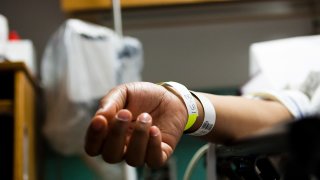
Covid long-haulers, people who suffer from lingering symptoms after they were first infected, could require months of follow-up appointments. This level of aftercare could lead to a heavy financial burden for many Americans because of the inconsistency of the health-care system.
"There is not one access model here in the United States," said Krutika Amin, associate director for the Kaiser Family Foundation. "For preventive services, for treatment, it really depends on people's insurance status, where they are located and the provider network near them."
"Even for people with insurance, affordability is an issue," she added.
Miranda Erlanson, a middle-school teacher from Austin, Texas, has been experiencing symptoms of Covid-19 since March 2020. She spoke with CNBC about her experience trying to navigate the health-care system and handling the financial burden of her medical bills.
Get Philly local news, weather forecasts, sports and entertainment stories to your inbox. Sign up for NBC Philadelphia newsletters.
"We can't breathe from the bills, and we can't breathe because we can't breathe," she said.
"The aftercare expenses have actually been just as significant as the expenses for inpatient care," said Joe Babaian, a pharmaceutical industrial researcher who was hospitalized for coronavirus in December 2020. "That's the thing with Covid. It keeps on digging that financial hole. It's not just a hospital stay."
CNBC spoke with three Americans about their experience paying for their Covid treatment. Watch the video above to learn how coronavirus treatment costs can add up long after a patient leaves the hospital.




